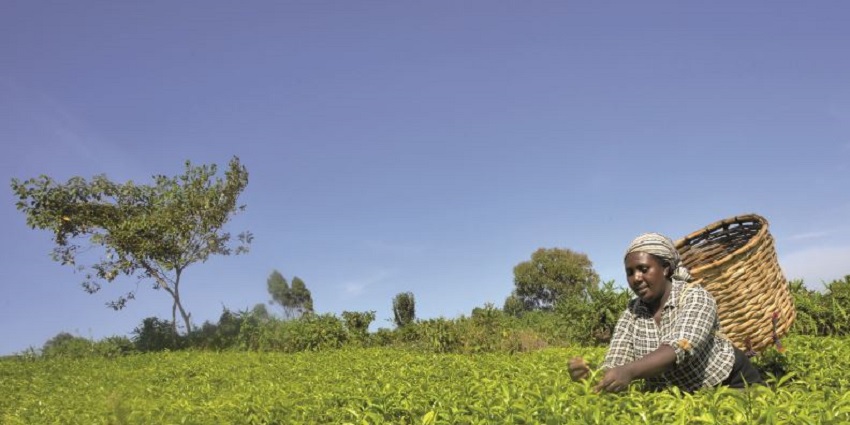
On the occasion of The African Microfinance Week (SAM, the FinDev portal asked a number of questions to Eric Campos, Managing Director of the Grameen Crédit Agricole Foundation and CSR Manager of Crédit Agricole SA on the adaptation of microfinance institutions to climate change.
How can inclusive finance help to achieve the SDGs in Africa?
Inclusive finance is a voluntary initiative of the financial sector to create positive social impact while creating financial value so as to make this undertaking sustainable. When socially effective, microfinance is an instrument of inclusive finance. But this can hold true also for the conventional financial sector which can seek to combine the financial return of the means and resources deployed with social impact. Inclusive microfinance makes it possible to foster access to financing for segments of the population which have been traditionally excluded from the banking sector. In this respect, it supports the consumption by segments of the population with low income, often from informal sources, who are at times relatively more vulnerable (rural communities, women, young job seekers) and enables them to build a little capital. When such financing supports the development of small businesses, the latter in turn create growth, boost employment and stimulate the local economy.
What is the role of MFIs in the face of climate change, in particular in Africa, a continent particularly vulnerable to these upheavals?
The Food and Agricultural Organization of the United Nations has stressed that urgent action is needed to support small concerns in their efforts to adapt to climate change. Farmers, nomadic herders, fishermen and small forest owners all depend on activities which are closely and inextricably linked to the climate. The negative effects on the food supply are getting worse, and may even deteriorate into disaster in certain particularly vulnerable areas. It is therefore urgent to bolster the resilience of the small family farm faced with an upheaval in operating conditions. The African continent is more exposed in this respect, because only 0.25% of the 178 million insured farmers in the world are African.
In the face of climate change, access to financial services is essential because it contributes to supporting the stability of farming activities when MFIs manage to reach farmers in rural areas. Nevertheless, there is no denying that enormous challenges still lie ahead. Heavy investments are needed to improve agricultural productivity, develop rural infrastructures, and foster the establishment of companies processing agricultural products and engaging in agri-industrial activities. Microfinance continues to be an overly isolated tool which is not yet matched up to the continent’s challenges because there is no ecosystem to support the modernization of agriculture.
In particular, how can MFIs support rural populations and small producers?
Whereas these farmers should ideally have adequate financial security and good livelihoods, they actually lead a life of daily struggles. They are faced with limited access to agricultural inputs (seeds, fertilizers, water, agrichemical products, agricultural tools and machinery) and to markets. They are henceforth regularly exposed to unexpected meteorological events that affect their production and therefore their income, without any insurance coverage. Farmers are often helpless against the ravaging effects of climate change.
The MFIs are often the only recourse a farmer has to finance his working capital requirements. They provide a variety of financial products that seek to adapt to the activities of the rural world. When MFIs are socially committed, they also provide “on-site support” which bolsters their effectiveness (workshops, on-site visits and risk assessment, advice on the purchase of raw materials, etc.). The sector of microfinance therefore remains the only alternative to usurers in very many rural areas. These institutions can also provide agricultural insurance products, which however are still prohibitively expensive for village agriculture which continues to be mostly at the subsistence level.
What concrete actions does the Grameen Crédit Agricole foundation take on this subject in Africa?
Rural life is the cornerstone of growth in developing countries. Rural areas have high growth potential but because of lack of means and resources, they are being deserted by their inhabitants who migrate to areas of potential employment and go to live on the fringes of cities. This development issue of rural economies is also linked to the necessary bolstering of subsistence agriculture to address malnutrition against the background of exponential population growth, and the promotion of the entrenchment of populations around jobs in the agricultural sector.
The Foundation is a contributor to rural development. 40% of the loans granted are earmarked for Sub-Saharan Africa. We are effectively present in some fifteen countries, and the Foundation’s financing policy is geared primarily to rural areas and women. The principles of action are marked by the need for the management of the social and economic performance of our partners. We promote responsible finance through strict eligibility criteria and a systematic economic and social performance analysis. As the fight against poverty cannot be waged alone, however, we take action alongside other committed stakeholders. With openness, determination and ability to listen, we call for the convergence of actions and agendas.
What do you expect from SAM 2019?
The battle against climate change is a global challenge for which we call on all parties to face up to their responsibilities. But the resilience of populations and economies is a local challenge which requires public and private stakeholders who are capable to contribute, in their respective area of responsibility, to the modernization of their regions. The SAM is a place for exchange, learning, information and sharing. It is also a place where a coalition of the willing is being built. We hope that the 2019 edition will bring us the optimism of determination and the energy of inspiration.